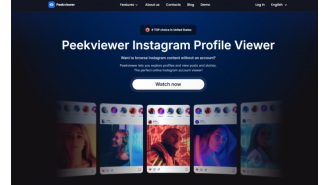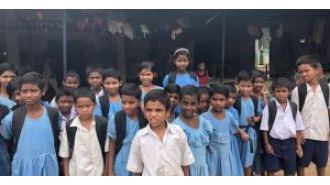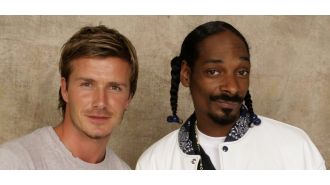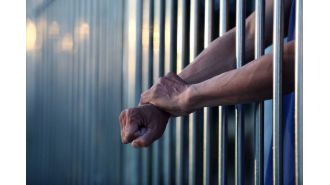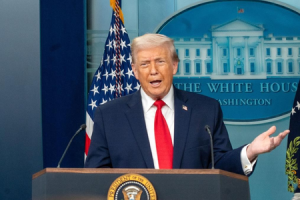Negotiations for Illinois budget continue past deadline as Democrats disagree on potential tax increases.
Illinois Democrats will miss deadline for budget approval due to opposition to proposed tax increases by Gov. J.B. Pritzker.

In Springfield, the Illinois Democrats have long held a firm grasp on control. However, for the second year in a row, they are unable to meet their own deadline for approving a state spending plan. This is causing some tension as Governor J.B. Pritzker faces pushback from members of his own party regarding his proposed $52.7 billion budget for the upcoming election year. The main issue at hand is the need for more than $900 million in tax hikes in order to balance the budget.
The state's financial outlook is tighter than in previous years, when revenues consistently exceeded projections. As of Thursday evening, negotiations for the budget have yet to yield an agreement, leaving little time for both the House and Senate to approve a plan before the end of the spring session on Friday.
One of the main points of contention is the proposed tax increases, which include hikes for sportsbooks, retailers, and corporations. Some Democrats are hesitant to accept these increases, especially considering the state's current financial situation. With no unexpected windfalls to rely on and the federal coronavirus relief money already allocated for one-time expenses, many lawmakers are advocating for a more cautious approach.
Democratic state representative Fred Crespo of Hoffman Estates expressed his concerns, saying, "I'm afraid that the decisions we make now will complicate things next year. Instead of using all of these revenue enhancements, I suggest we use one or two, make some cuts, and save some of those tools for next year when we know additional revenue will be needed."
One particular point of contention is Pritzker's plan to raise taxes on sports wagers, increasing the rate from 15% to as much as 35%. The governor's administration estimates that this change would generate an additional $200 million in revenue. Pritzker emphasizes that this tax would be on sports betting companies like DraftKings and FanDuel, not individual bettors.
During an event in Pontoon Beach, Pritzker downplayed the resistance he has faced from fellow Democrats, instead attributing it to the sports betting companies. These companies have hired high-powered lobbyists to advocate for their cause with lawmakers.
Pritzker stated, "Sportsbooks have made millions from the state of Illinois, and all we're asking is that they pay a little more of their fair share." He also clarified that the tax would not affect individual bettors, but rather the companies themselves.
In the Metro East area of Illinois, home to entertainment venues such as DraftKings at Casino Queen in East St. Louis and FanDuel Sportsbook & Horse Racing in Collinsville, there is concern about the potential impact of the tax increase. State Senator Christopher Belt, a Democrat from nearby Swansea, stated that the casino in East St. Louis contributes a significant portion of the city's general revenue fund. He worries that any hit to the casino's revenue would have a direct impact on the city's public safety and other services.
However, Belt also disagrees with budget cuts as an alternative to the tax increases on sports betting, as suggested by Deputy Governor Andy Manar in a memo to state agencies earlier this month. Manar cautioned that if the tax hikes do not pass, agencies should prepare for $800 million in cuts to various state services. Belt stated, "This is why we're burning the midnight oil. It's the governor's proposal, so he may be open to suitable alternatives, and that's what we're looking for now."
Representative Jay Hoffman, part of House Speaker Emanuel "Chris" Welch's Democratic leadership team, echoed Belt's concerns. He stated that the casino and racetrack have been able to stay afloat thanks to hosting DraftKings and FanDuel. He worries that a tax increase could have a negative ripple effect on the operations of these venues. "For me, it's really a local issue because those entities have a lot of employees. In order to ensure that these employees keep their jobs, I think it's difficult to vote for a tax increase," said Hoffman.
The opposition to the tax increases is not limited to downstate Illinois. Democratic Representative Curtis Tarver of Chicago also expressed his disapproval of the proposed tax hike for the relatively new business of legal sports betting. "For an industry that is still in its early stages, increasing taxes by 100% in four years sends a negative signal to other businesses considering coming to Illinois," Tarver said.
On the other hand, Representative Marcus Evans of Chicago, also part of House Democratic leadership, believes that higher taxes would not negatively impact the sportsbooks. "Some people may think the taxes are too high, but on the East Coast, the taxes are much higher, and people are still betting," Evans stated. For example, the sports betting tax in New York state is 51%.
The budget negotiations continue as lawmakers try to find a solution that will satisfy both the need for revenue and the concerns of their constituents. As Belt stated, "We are working tirelessly to find a suitable alternative that will benefit both the state and its citizens." With the deadline fast approaching, the pressure is on to reach a budget agreement that will benefit the state and its residents in the long run.
The political landscape in Springfield, Illinois has been dominated by the Democrats for quite some time. However, for the second year in a row, they find themselves unable to meet their own deadline for approving a state spending plan. This is due to the pushback from Governor J.B. Pritzker's own party on his proposal to raise over $900 million in taxes. This money is necessary to balance his proposed budget of $52.7 billion, which is especially crucial in an election year.
With the state facing a tighter financial outlook, negotiations for the budget for the upcoming fiscal year have been rocky. Some Democrats are hesitant to accept Pritzker's proposed tax hikes on sportsbooks, retailers, and corporations. This cautious approach is driven by the fact that there are no unanticipated revenue windfalls to rely on this year, and billions of dollars in federal coronavirus relief money have already been allocated for one-time expenditures from past years.
Democratic state Rep. Fred Crespo of Hoffman Estates expressed his concern, saying, "I'm afraid that we're making decisions now, today, that are going to complicate things next year." He suggests using some of the revenue enhancements this year, but saving some for next year when additional revenue will be needed.
One of the main points of contention is Pritzker's plan to raise the taxes on sports wagers, which would generate an estimated $200 million in additional revenue. This proposal has faced resistance from fellow Democrats, but Pritzker has emphasized that the tax would be on companies like DraftKings and FanDuel, not on sports bettors themselves.
At an event in Pontoon Beach, Governor Pritzker addressed the pushback he's received, attributing it to the sports betting companies who have hired high-powered statehouse lobbyists. He stated, "Sportsbooks have made literally tens of millions of dollars from the state of Illinois, and all we're asking is that they pay a little more of their fair share." This sentiment is echoed by state Sen. Christopher Belt, who raised concerns about the potential negative impact on the blighted community of East St. Louis, which depends on the casino as an economic driver.
However, Belt also disagrees with Deputy Gov. Andy Manar's suggestion of budget cuts as an alternative to the tax increases. He believes there must be other suitable alternatives, and that is why they are "burning the midnight oil" to find a solution.
Rep. Jay Hoffman, a member of House Speaker Emanuel "Chris" Welch's Democratic leadership team, shares Belt's concerns about the impact of a tax increase on the operations of the venues. He says, "For me, it's really a local issue because those entities that have a bunch of employees; they were able to stay afloat by hosting FanDuel and DraftKings."
The opposition to the proposed tax hikes is not limited to downstate. Democratic Rep. Curtis Tarver of Chicago also expressed his disapproval, stating, "For an industry to be in its nascence and to have a business model that increases the taxes by 100% in four years isn't a good signal to other businesses that might want to come to Illinois." Rep. Marcus Evans, also from Chicago and a member of House Democratic leadership, believes that the taxes would not have a negative impact on sports books, pointing out that the taxes on the East Coast are even higher.
In conclusion, the budget negotiations for the upcoming fiscal year have been challenging, with Democrats divided on the issue of tax increases. While some are pushing for a more cautious approach, others are concerned about the impact on local communities and the potential message it sends to other businesses. As the deadline looms, lawmakers are working tirelessly to find a suitable solution that will benefit the state and its citizens.


